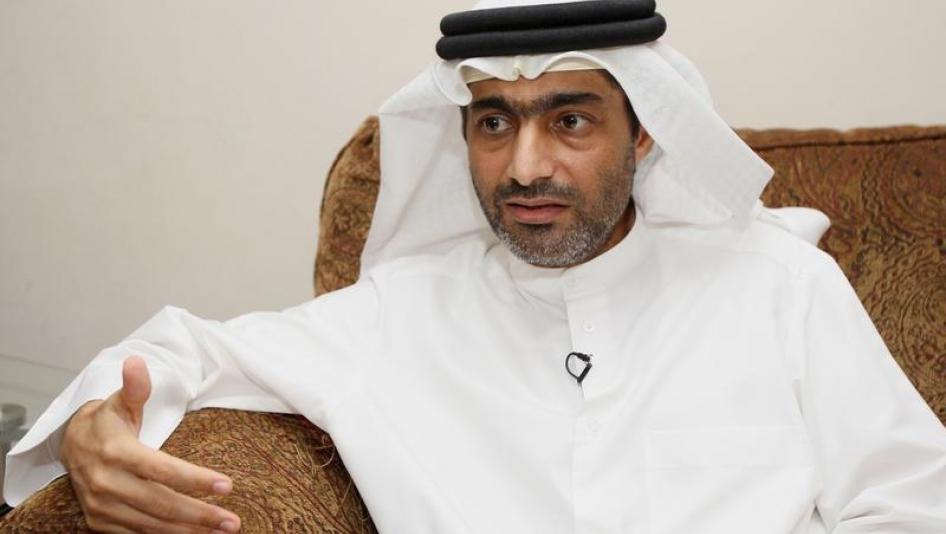United Arab Emirates (UAE) human rights defender, Ahmed Mansoor, is on a hunger strike in order to protest poor prison conditions and his unfair trial, both of which are not in accordance with international standards. Mansoor’s hunger strike, coupled with the undesirable prison conditions, are concerning as they may severely compromise his health. The hunger strike has been going on for a month in Al-Sadr prison in Abu Dhabi, where Mansoor is reportedly being held in isolation.
Mansoor is a member of the UAE Five who, during the Arab Spring protests, petitioned the government for legislative reforms. The five individuals were arrested in April 2011 for “insulting the country’s leadership and endangering national security”, however, following their sentencing in November 2011, the individuals were pardoned and released the next day due to international pressure.
Mansoor has since been imprisoned again after being arbitrarily arrested on 20 March 2017 in the middle of the night. He was arrested from his home where he lived with his wife and sons and was forcibly disappeared and prevented from getting in touch with his family. On 29 May 2018, Mansoor, who used his social media to call for the release of fellow human rights defenders and address human rights violations in the UAE, was convicted of insulting “the status and prestige of the UAE and its symbols,” publishing “false information and rumors on social media,” and promoting “sectarianism and hatred” under the UAE’s 2012 Cybercrime Law. The court handed down a ten year prison sentence and fine of Dh1 million ($272,000 USD) on the aforementioned charges, which Mansoor appealed. On 31 December 2018, the court rejected his appeal and upheld the original ruling, which means that he has exhausted all legal remedies.
Mansoor, like many prisoners of conscience, continues to be at risk of torture and mistreatment in UAE prisons and has been subjected to unfair trials despite calls for the UAE to adhere to international standards by United Nations (UN) experts. Mansoor was denied access to a lawyer or defense counsel during trial, and is now reportedly being held in a cell with no bed, no water, and no access to a shower. His health has deteriorated greatly and he is in bad shape, leading Mansoor to take on a hunger strike to protest his conditions. This is a matter of serious concern given the poor conditions inmates, including Alia Abdulnoor who is dying of cancer, are reportedly regularly subjected to in UAE prisons. It is critical that prison authorities take action to improve the poor conditions and address concerns about the health and well-being of Ahmed Mansoor and other detained human rights defenders who have experienced poor treatment and torture in prison.
UAE authorities are urged to unconditionally release Ahmed Mansoor and other prisoners of conscience, and to ensure all prisoners and detainees are treated in line with the Mandela Rules, which state every prisoner “shall be provided with water and with such toilet articles as are necessary for health and cleanliness” among other standards. The UAE also is encouraged to allow UN experts and international and independent organizations access to visit detained human rights defenders. The UAE must investigate rather than punish reports of prison abuse, and must provide prisoners with adequate conditions, as well as proper medical attention. In the case of Ahmed Mansoor, it is urgent that the UAE address his concerns before his health further deteriorates as an effect of the hunger strike and lack of access to necessities and clean living conditions.
Fritzle Pinedo is an Advocacy Intern with ADHRB.





